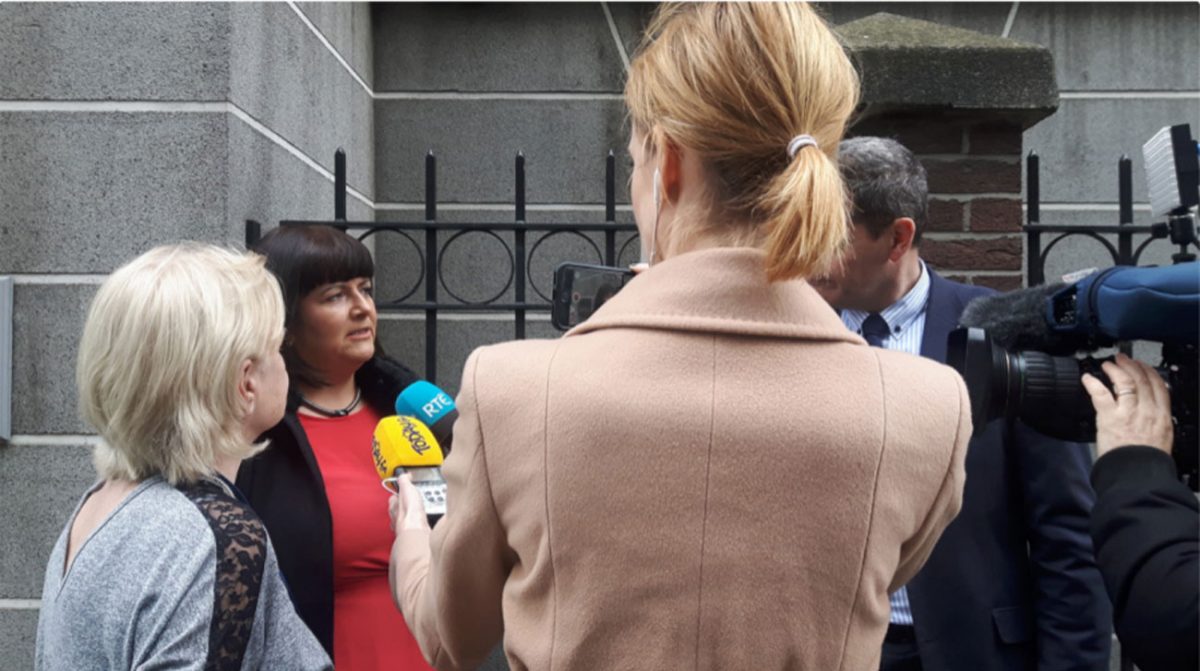“There’s no future in reducing employment to a high tech sweatshop” – Fórsa warns on gig economy
Delegates at Fórsa’s Services & Enterprises divisional conference were told yesterday (Thursday) that the ‘gig economy’ has created a field of employment governed by developing technology but there’s a substantial risk that workers are being re-directed to models of past exploitation.
Speaking to a motion calling for the union to commission research into the potential impact of the gig economy on its members, Fórsa assistant general secretary Ashley Connolly (pictured, centre) said the recent introduction of the Employment (Miscellaneous Provisions) Act, to protect workers on insecure contracts, was welcome but that challenges remain for employment law to keep pace with changes in the economy and the workforce.
While app developers are hailed as futurist visionaries, the type of work on offer is closer in form to the piecework and sweatshops of the 19th Century garment trade.
“Globalisation and technology has long since changed the parameters of the environment in which we work. The emerging trend in freelance work has been facilitated by a rapid development in technology.
“There are now a wide range of platforms hosting these services, connecting consumers with individual service providers through smartphone apps. The development of these apps has had a disruptive effect on traditional models of work and the service they provide are hailed as revolutionary.
“But, while the developers are hailed as futurist visionaries, the type of work on offer – and the manner in which the employment relationship is managed – is closer in form to the piecework and sweatshops of the 19th Century garment trade.
“Technology is pointing forward, but there is a substantial risk that workers are being re-directed to models of past exploitation. There’s no future in reducing employment to a high tech sweatshop.
Left unchecked, the development of app-controlled piecework would be bad for the economy, incur a loss of revenue to the Exchequer and create instability for workers who could no longer rely on a fixed income, with no protections or benefits.
“Let’s not forget – when you strip it all back – somebody somewhere is required to ensure that all this fantastic technology can operate,” she said.
Ms Connolly said that, if left unchecked, the development of app-controlled piecework would be bad for the economy, incur a loss of revenue to the Exchequer and create instability for workers who could no longer rely on a fixed income, with no protections or benefits.
She said the union has seen the erosion of full-time permanent roles in favour of seasonal employment in the aviation industry as part of a growing trend for the casualisation of work.
“Some contracts are now “fly only” contracts. As the name suggests, the employee is only paid if they actually fly, they’re not compensated for ground duties or standby,” she said.
Ms Connolly said the union needed to be able to strike a balance between facilitating flexible working conditions and protecting employees from exploitation, ensuring protection for all workers regardless of the employment relationship.

